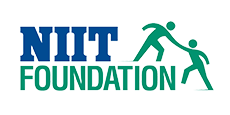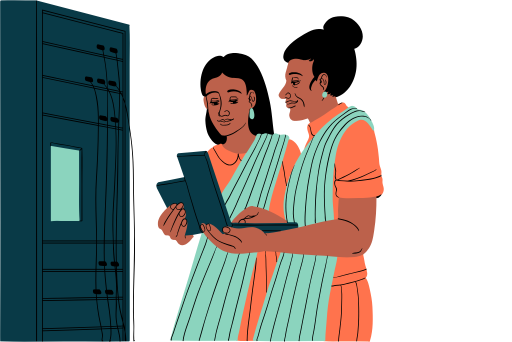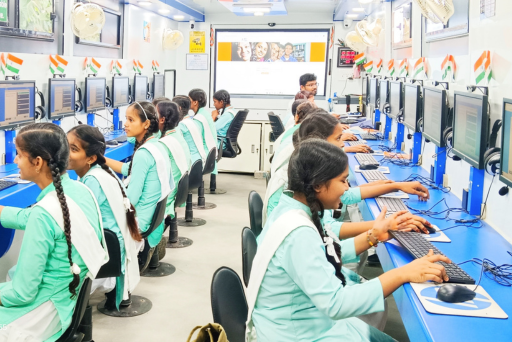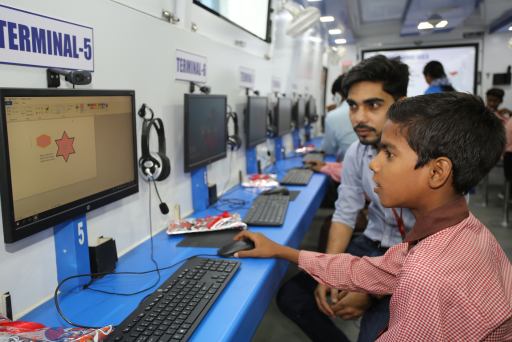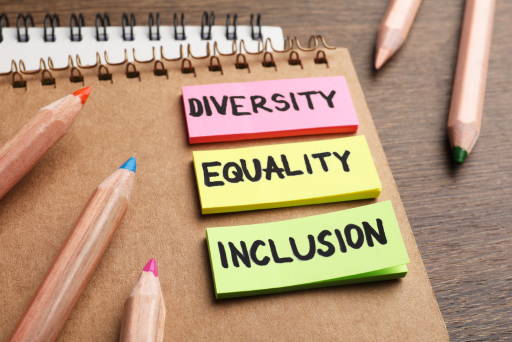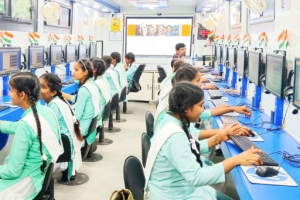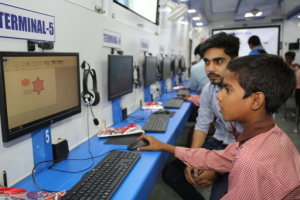By transforming a vehicle into a fully equipped mobile learning lab, the Foundation partners with women empowerment NGOs and rural education NGOs to deliver courses in basic computing, Microsoft Office and internet navigation. This initiative focuses on laying the groundwork for lasting change, by equipping rural women with technology capabilities.
Rasmi Ariya’s journey is evidence of the transformative power technology has for rural women. At 31, Rasmi resides in Vadodara district in Gujarat, where she runs a modest beauty salon that earns her around INR 15,000 each month. Having completed her education only up to the tenth grade, Rasmi managed every aspect of her business manually by tracking appointments, tallying inventory and estimating profits by hand. When the Digital Bus rolled into her village, she enrolled in its NDLM course with no prior experience in computers. Over several weeks of hands-on training, Rasmi mastered Microsoft Word and Excel, learned to navigate email and social media, and built the confidence to apply these tools in her daily life.
By the end of her training, Rasmi could manage customer data digitally, create inventory spreadsheets and even promote her salon on social media platforms. She could not even imagine these capabilities previously. “Now I have knowledge of computers,” she said with a bright smile upon course completion. “This will help me teach others and be extremely beneficial in managing and expanding my business. I can track my monthly profit and loss, manage client records more efficiently, and attract new customers online.” These new skills have not only streamlined her existing operations but have also opened doors to potential services like online booking and digital payment options, turning her modest salon into a budding digitally enabled enterprise.
Rasmi is one among thousands of women who have benefited from the Digital Bus program across India. Since its inception, the initiative has trained over 5,000 rural women, partnering with more than 30 women empowerment NGOs and rural education NGOs to reach the most marginalized communities. Graduates have launched micro-enterprises in tailoring, agri-marketing and e-commerce, illustrating how targeted digital literacy programs can catalyze local economies.
Bridging the digital divide not only helps a woman increase her income, it also enhances her role within the community. As more women take to technology, they are able to mentor their peers, and inspire the next generation of women to dream bigger.
